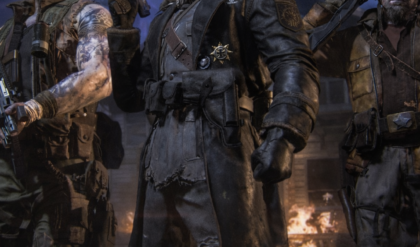Lashana Lynch’s portrayal of MI6 agent Bianca Pullman in The Day of the Jackal has sparked a divisive reaction among viewers. While some praised her performance and the complexity of her character, others criticized both the role and the actress in ways that often veered into mean-spirited and inappropriate territory. The intensity of the debate raises broader questions about audience expectations, representation, and the treatment of female characters in espionage narratives.
A Bold Narrative Choice
One of the show’s most shocking moments came in the finale when Bianca met her end. This decision was lauded by some viewers as a return to the high-stakes unpredictability reminiscent of early Game of Thrones, where significant characters were not shielded from sudden demise. The show had no issue eliminating minor characters and targets, but the deaths of two key players in the finale marked a bold storytelling choice.
For Bianca, her relentless pursuit of the Jackal ultimately led to her downfall. Her death underscored the dangers of espionage work, illustrating the harsh reality that even a highly skilled operative is not invincible. Some fans appreciated this realism, while others felt her demise was unsatisfying or unjustified.
Audience Backlash and Unfair Criticism
Despite Lynch’s layered performance, Bianca Pullman became one of the most criticized characters on discussion forums, particularly on Reddit. Some of the criticism focused on her character’s personality—viewers described her as overconfident, abrasive, or out of her depth. However, the line between fair critique and outright hostility was frequently crossed.
Lynch, as a Black woman in a lead role, faced an alarming number of derogatory comments unrelated to her performance. Remarks about her body, waist size, and even racialized language highlighted the persistent issue of how women—especially Black women—are treated in media discourse. While it is fair for audiences to dislike a character, the vitriol directed at Lynch as an actress reflects deeper biases that extend beyond storytelling preferences.
Bianca’s Role: A Flawed but Compelling Character
Bianca was not written to be universally likable. She was tenacious, morally ambiguous, and determined to complete her mission at any cost. Her approach was often ruthless, making her a challenging protagonist. Some viewers interpreted her as tone-deaf and blind to her own limitations, believing she saw herself as a hero when she was, in fact, more morally compromised than she realized.
However, these complexities are what made her an interesting character. Espionage narratives thrive on figures who operate in gray areas—characters who are not straightforward heroes or villains but exist somewhere in between. Bianca’s relentless nature, combined with her flaws, made her a fascinating counterpoint to the Jackal. Her demise was not just a plot device but a testament to the dangerous world she inhabited.
Lashana Lynch’s Performance: A Critical View
Regardless of how audiences felt about Bianca as a character, Lynch’s performance itself was widely regarded as strong. She brought intensity and depth to the role, portraying Bianca as both a formidable operative and a woman grappling with internal conflicts. Some appreciated the nuance in her performance, while others found her approach too cold or distant.
Lynch’s commitment to authenticity extended beyond her acting choices. As a co-executive producer, she advocated for realistic representation, particularly in how Black women’s hair and fashion were portrayed on screen. Her insistence on accurate wardrobe, styling, and cultural details was a significant step toward better representation in mainstream television.
What’s Next for The Day of the Jackal?
With Bianca gone, the question remains: who will fill the narrative void she leaves behind? Some predict that Nuria, another female character with strong moral convictions, will become the new target of audience ire. If so, it may indicate a broader pattern in how certain characters—especially women who do not fit traditional molds of likability—are received.
Ultimately, the discourse surrounding Bianca Pullman highlights both the power of strong, divisive characters and the unfortunate reality of toxic fandom. While criticism of a character’s writing and development is valid, personal attacks on actors cross the line into unproductive and harmful territory. Lynch’s work in The Day of the Jackal remains a testament to her talent, regardless of the divided reception.





